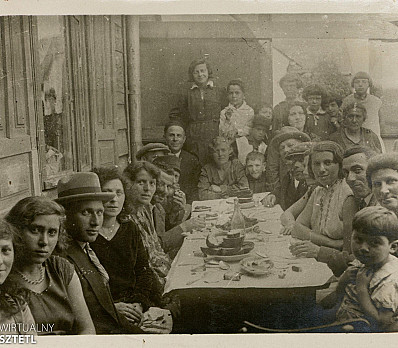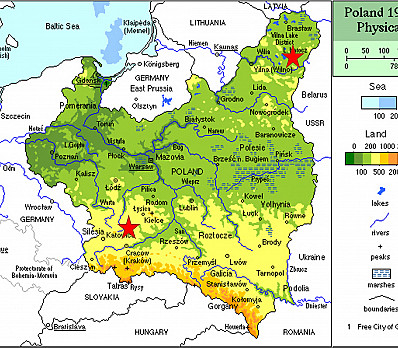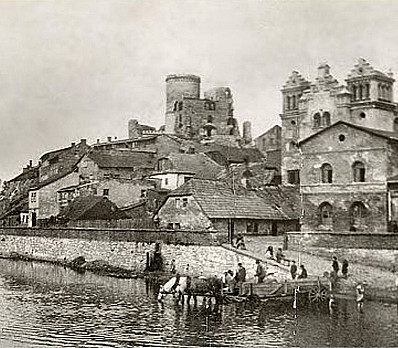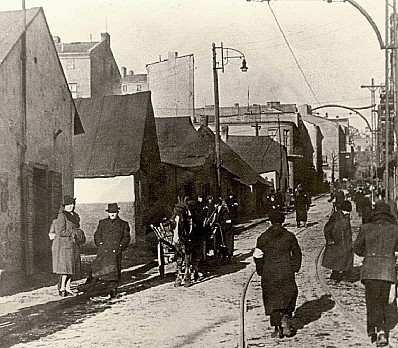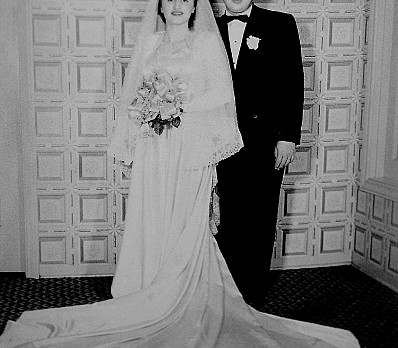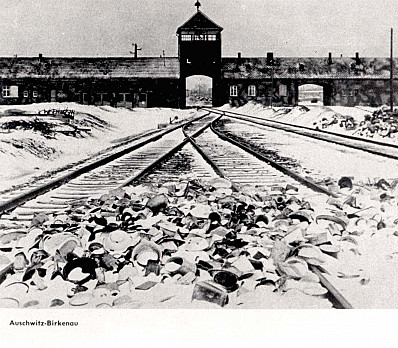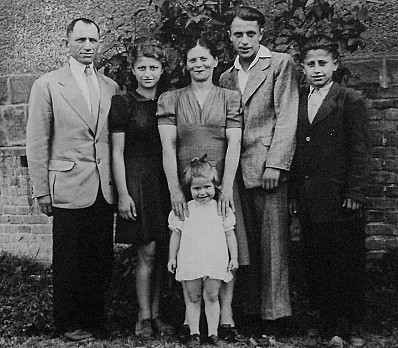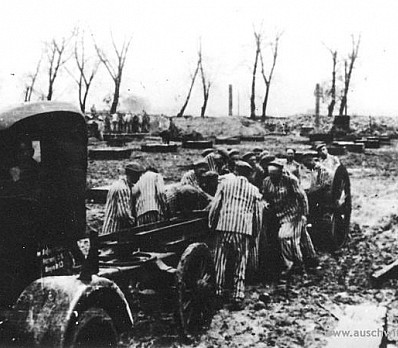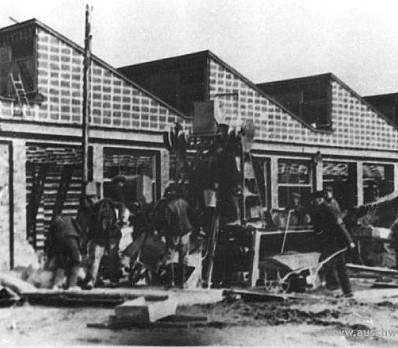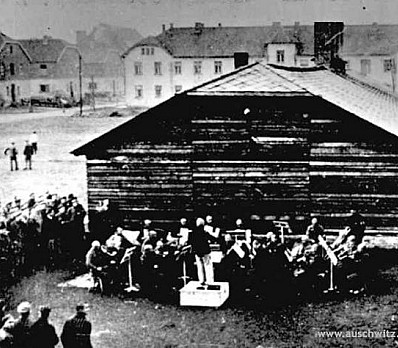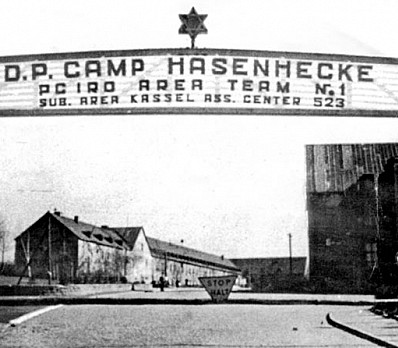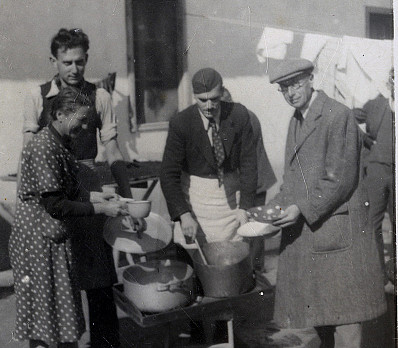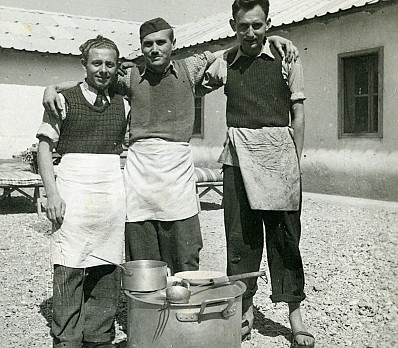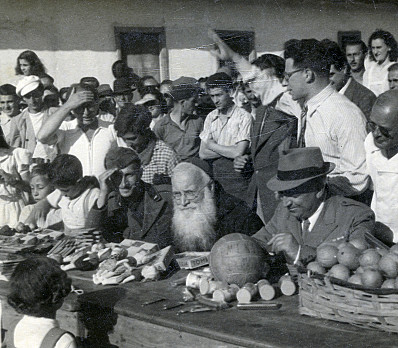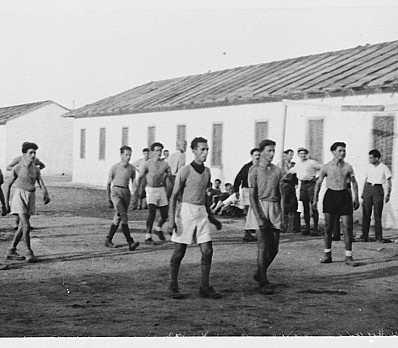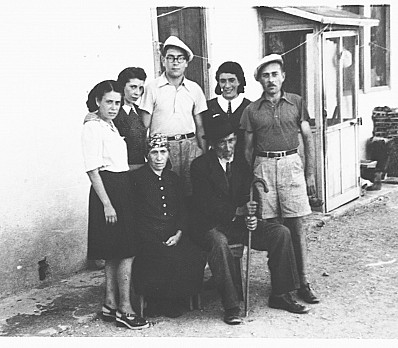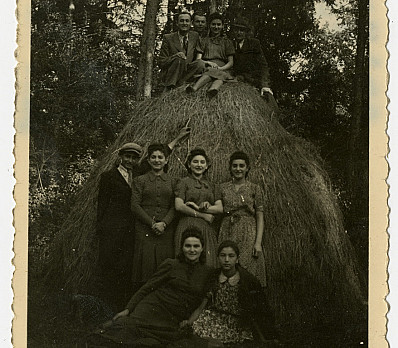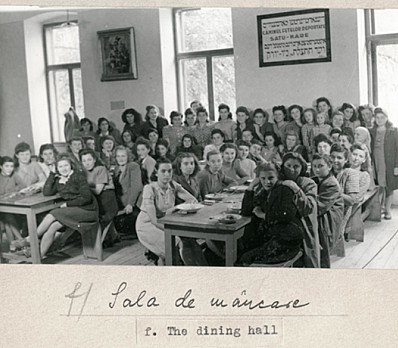We have updated our Terms of Service contract
Updated on Feb 20, 2023
Welcome to Haggadot.com (the "Site"). Haggadot.com, customandcraft.org, [email protected]
and all future,
as-yet-to-be-created brands are projects of Custom & Craft Jewish Rituals, Inc., which is the
legal name of this
California nonprofit organization (hereinafter referred to as “Haggadot.com”). All projects of
Custom & Craft Jewish
Rituals are subject to the Terms of Service described below. This Terms of Service ("TOS")
contain the terms and
conditions that govern your use of the Site, and the Haggadot.com Service (as defined below).
This TOS describes your
rights and responsibilities and what you can expect from the Haggadot.com Service. Use of the
Site constitutes your
acceptance of and agreement to this TOS.
Haggadot.com reserves the right to add, delete, and/or modify any of the terms and conditions
contained in this TOS, at
any time and in its sole discretion, by posting a change notice or a new agreement on the
Haggadot.com Site. In the
event of substantive changes to this TOS, you may be notified by email. If any modification is
unacceptable to you, your
only recourse is to not use the Site and the Haggadot.com Service. Your continued use of the
Haggadot.com Site following
posting of a change notice or new TOS on the Haggadot.com Site will constitute binding
acceptance of the changes.
The Haggadot.com Service.
Haggadot.com provides a number of Internet-based services through the Site as well as any other
Haggadot.com affiliate
websites, digital content, mobile applications, online service or anywhere the TOS are shown
(all such services,
collectively, the "Haggadot.com Service"). One such service enables users to create customized
products, including
without limitation, merchandise and books (collectively, "Products"). Haggadot.com users may
create and purchase
individual Products for their own personal use. Haggadot.com may offer a number of other
services on its Site, including
without limitation, message boards, contests, and newsletters, which may change from time to
time.
Use of the Web Site and Haggadot.com Service.
Eligibility. Haggadot.com will only knowingly provide the Haggadot.com Service to parties that
can lawfully enter into
and form contracts under applicable law. If you are under the age of 18, but at least 13 years
of age, you may use the
Haggadot.com Service only under the supervision of a parent or legal guardian who agrees to be
bound by this TOS. The
Haggadot.com Service is not intended for children under the age of 13.
Compliance with TOS and Applicable Law. You must comply with all of the terms and conditions of
this TOS, the applicable
agreements and policies referred to below, and all applicable laws, regulations and rules when
you use the Haggadot.com
Service and the Site.
Your License to Use the Web Site and the Haggadot.com Service.
Haggadot.com solely and exclusively owns all intellectual property and other rights, title and
interest in and to the
Haggadot.com Service and Site, except as expressly provided for in these TOS. For example and
without limitation,
Haggadot.com owns the copyrights in and to the Site, and certain technology used in providing
the Haggadot.com Service.
You will not acquire any right, title or interest therein under this TOS or otherwise to any
intellectual property owned
by Haggadot.com.
Haggadot.com grants you a limited revocable license to access and use the Site and the
Haggadot.com Service for your own
personal purposes, subject to your compliance with this TOS. This license does not include the
right to collect or use
information contained on the Site for purposes prohibited by Haggadot.com; to compete with
Haggadot.com; to create
derivative works based on the content of the Site; or download or copy the Site (other than page
caching). If you use
the Site in a manner that exceeds the scope of this license or you breach this TOS, Haggadot.com
may revoke the license
granted to you.
This Section 2.3 does not pertain to your intellectual property rights. For information
regarding your intellectual
property rights, please see Section 4.
Third-Party Content: Wherever Haggadot.com websites, online services, and digital content make
reference to third party
organizations or include information, content, or graphics from third parties, Haggadot.com
assumes third-party content
is for general informational purposes only and displaying third-party content does not
constitute a recommendation or
endorsement of the opinion, product or service. Haggadot.com makes no claim as to the accuracy
or relevance of
third-party content. If you decide to access any other websites linked to or from this website,
you do so entirely at
your own risk.
Third-Party Services. Haggadot.com may use third parties to provide certain services accessible
through the Site.
Haggadot.com does not control those third parties or their services, and you agree that
Haggadot.com will not be liable
to you in any way for your use of such services. These third parties may have their own terms of
use and other policies.
You must comply with such terms and policies as well as this TOS when you use those services. If
any such terms or
policies conflict with Haggadot.com's TOS, agreements, or policies, you must comply with
Haggadot.com's TOS, agreements,
or policies, as applicable.
General Rules.
Prohibited Use. You may only use the Haggadot.com Service as expressly permitted by
Haggadot.com. You may not cause harm
to the Site or the Haggadot.com Service. Specifically, but not by way of limitation, you may
not: (i) interfere with the
Haggadot.com Service by using viruses or any other programs or technology designed to disrupt or
damage any software or
hardware; (ii) modify, create derivative works from, reverse engineer, decompile or disassemble
any technology used to
provide the Haggadot.com Service; (iii) use a robot, spider or other device or process to
monitor the activity on or
copy pages from the Site, except in the operation or use of an internet "search engine," hit
counters or similar
technology; (iv) collect electronic mail addresses or other information from third parties by
using the Haggadot.com
Service; (v) impersonate another person or entity; (vi) use any meta tags, search terms, key
terms, or the like that
contain Haggadot.com's name or trademarks; (vii) engage in spamming or any activity that
interferes with another user's
ability to use or enjoy the Haggadot.com Service; (viii) assist or encourage any third party in
engaging in any activity
prohibited by this TOS; (ix) upload to, transmit through, or display any material that is
unlawful, fraudulent,
threatening, abusive, libelous, defamatory, obscene, or otherwise objectionable or that
infringes any third party’s
intellectual property rights or any confidential, proprietary, or trade secret information of
any third party; (x)
upload, transmit, or display any advertisements, solicitations, chain letters, pyramid schemes,
investment
opportunities, or other unsolicited commercial communications (unless expressly permitted); (xi)
display adult nudity or
inappropriate child nudity; (xii) use the Site for sale of goods or services; or (xiii) upload
photographs or other
content depicting images or people who have not given permission to have their photographs or
images uploaded to a share
site.
Privacy Policy. By entering into this TOS, you agree to Haggadot.com's collection, use and
disclosure of your personal
information in accordance with the Privacy Policy as amended from time to time.
Password Security. You are solely responsible for protecting the security and confidentiality of
the password and
identification assigned to you. You shall immediately notify us of any unauthorized use of your
password or
identification or any other breach or threatened breach of this website’s security.
Ordering Policies. If you purchase Products, you agree to do so in accordance with
Haggadot.com's ordering policies and
instructions on the Site. Your order constitutes an obligation to pay, subject to acceptance by
Haggadot.com at our sole
discretion. Your order is accepted by us when we ship the goods to you. An order confirmation
does not signify our
acceptance of your order, but merely confirms receipt of your order. We will send you a shipment
confirmation once your
order is accepted. Haggadot.com reserves the right to cancel any order prior to delivery at our
sole and absolute
discretion, whether or not you have already been charged. If your order is canceled pursuant to
this section, and you
have already been charged, Haggadot.com will automatically issue a refund to you. As the
products are individually
produced, an approximate availability and delivery time are shown alongside the product
description prior to order
completion. The products will be delivered as soon as they are available. The times are
estimates only and cannot be
guaranteed. At the latest, delivery will occur within thirty (30) days from acceptance of your
order by Haggadot.com.
Please note that Haggadot.com is not able to deliver to all regions worldwide. All prices are
subject to the delivery
charges, as well as any applicable taxes, duties, fees, or levies. Haggadot.com reserves the
right to change the prices
published on the Services at any time. However, orders already submitted to us will not be
affected by such changes.
Title to the Products you purchase passes to you when the Products are delivered to the common
carrier.
Create and Buy General Rules and License.
Description. As part of the Haggadot.com Service, Haggadot.com offers a service (the "Create &
Buy Service") that allows
you to upload images, video, audio, data, and other content as well as text, files, and works of
authorship
(collectively, "Content") to the Site to create, produce, and purchase Products featuring the
uploaded Content for your
own use. “Content” also includes without limitation, any Content that you contribute or share
with other members through
the Site.
Delivery of Content. You will upload or deliver to Haggadot.com all Content that you want to use
with the Create & Buy
Service in accordance with the applicable instructions on the Site. Haggadot.com may, in its
sole and exclusive
discretion, determine whether any Content complies with such instructions and is satisfactory
for use with the Create &
Buy Service.
Ownership of your Content. You represent and warrant that you own or otherwise possess all
necessary rights with respect
to the Content and that the Content does not and will not infringe, misappropriate, use, or
disclose without
authorization or otherwise violate any copyright, trademark, trade secret right, or other
intellectual property or other
property right of any third party.
Use of Likeness. You consent to the use of your likeness, and you have obtained the written
consent, release, and/or
permission of every identifiable individual who appears in the Content to use such individual’s
likeness, for purposes
of using and otherwise exploiting the Content in the manner contemplated by these TOS. If any
such identifiable
individual is under the age of eighteen (18), you have obtained such written consent, release,
and/or permission from
such individual’s parent or guardian. You agree to provide a copy of any such consents,
releases, and/or permissions
upon our request.
Licensing Your Content to Haggadot.com. You will retain ownership of the Content that you upload
to the Site. You hereby
grant to Haggadot.com a perpetual, irrevocable, fully-paid and royalty-free, worldwide,
transferable, nonexclusive,
sublicensable (through multiple tiers) right and license to: (i) use such Content, in all media
existing now or created
in the future, as Haggadot.com deems necessary to enable you to use the Create & Buy Service to
create, produce, and
purchase Products; (ii) with respect to any Content that you expressly designate as being
“public,” to link to, use,
reproduce, create derivative works from, license, sublicense, distribute, print, publicly
display, and otherwise utilize
your Content including, without limitation, making your Content available to the Haggadot.com
community. Please note
that, while you retain ownership of your Content, any template or layout in which you arrange or
organize your Content
through tools and features made available through the Site or the Haggadot.com Service are not
proprietary to you, and
the rights to such template or layout are reserved to Haggadot.com.
Licensing Your Content to other Haggadot.com Members. Except for any of your Content that you
specify as “private”
during the submission process, you also hereby grant all other members of the Haggadot.com
community a non-exclusive,
worldwide, perpetual, irrevocable license to use, copy, publicly display, create derivative
works from, and otherwise
communicate and distribute your Content for any purpose on or through the Site or the
Haggadot.com Service and/or in the
Haggadot.com member’s own products. You acknowledge and agree that any such Haggadot.com member
can exercise the
foregoing rights without further notice, payment, or attribution to you. For avoidance of doubt,
any of your Content
that you designate as “public” will not be limited to any restricted purpose and is provided on
a non-proprietary and
non-confidential basis and will be generally accessible by other users of the Site and
Haggadot.com Service.
Reservation of Rights.
Monitoring. Haggadot.com reserves the right, but does not assume the obligation, to monitor
transactions and
communications that occur through the Site. If Haggadot.com determines, in its sole and absolute
discretion, that you or
another Haggadot.com user will breach a term or condition of this TOS or that such transaction
or communication is
inappropriate, Haggadot.com may cancel such transaction or take any other action to restrict
access to or the
availability of any material that may be considered objectionable, without any liability to you
or any third party.
Modification of the Service. Haggadot.com reserves the right to modify the organization,
structure or "look and feel" of
the Haggadot.com Service or the Site, and may change, suspend, or discontinue any aspect of the
Haggadot.com Service at
any time without any liability to you or any third party. Haggadot.com shall have complete
discretion over the features,
functions, prices and other terms and conditions on which the Haggadot.com Service is offered to
Haggadot.com users.
Submissions.
When you submit questions, comments, suggestions, ideas, message board postings, material
submitted via web forms,
contest entries, communications or any other information ("Submissions"), you grant Haggadot.com
permission to use such
Submissions for marketing and other promotional purposes, including the right to sublicense. You
agree that Haggadot.com
will have no obligation to keep any Submissions confidential. You will not bring a claim against
Haggadot.com based on
"moral rights" or the like arising from Haggadot.com's use of a Submission. This Section does
not apply to your Content
that you use in connection with the Create & Buy Service. Any personal information you submit is
covered by our Privacy
Policy.
You shall not upload, distribute, or otherwise publish through this website any content,
information, or other material
that (a) violates or infringes the copyrights, patents, trademarks, trade secrets, or other
proprietary rights of any
person; (b) is libelous, threatening, defamatory, obscene, indecent, pornographic, or could give
rise to any civil or
criminal liability under U.S. or international law; or (c) includes any bugs, viruses, worms,
trap doors, Trojan horses
or other harmful code or properties.
Haggadot.com reserves the right to immediately remove any content it deems offensive, or in
violation of these Terms and
Conditions. Haggadot.com also reserves the right to remove a user account, without notice, if
the user has been found to
pose a threat to other users or has violated any rule laid out in the Terms and Conditions.
Copyright and Trademark Issues
While we are not obligated to review Content for copyright or trademark infringement, we are
committed to protecting
copyrights and trademarks and expect users of our Site and Haggadot.com Services to do the same.
The Digital Millennium
Copyright Act of 1998 (the “DMCA”) provides recourse for copyright owners who believe that
material appearing on the
internet infringes their rights under U.S. copyright law. If you believe in good faith that any
material used or
displayed on or through our Site or the Haggadot.com Services infringes your copyright, you (or
your agent) may send us
a notice requesting that the material be removed, or access to it blocked. The notice must
include the following
information:
a physical or electronic signature of a person authorized to act on behalf of the owner of an
exclusive right that is
allegedly infringed;
identification of the copyrighted work claimed to have been infringed (or, if multiple
copyrighted works are covered by
a single notification, a representative list of such works);
identification of the material that is claimed to be infringing or the subject of infringing
activity, and information
reasonably sufficient to allow us to locate the material on our Site and/or the Haggadot.com
Services;
the name, address, telephone number and email address (if available) of the complaining party;
a statement that the complaining party has a good faith belief that use of the material in the
manner complained of is
not authorized by the copyright owner, its agent, or the law; and
a statement that the information in the notification is accurate and, under penalty of perjury,
that the complaining
party is authorized to act on behalf of the owner of an exclusive right that is allegedly
infringed.
If you believe in good faith that a notice of copyright infringement has been wrongly filed
against you, the DMCA
permits you to send us a counter-notice. Notices and counter-notices must meet the then-current
statutory requirements
imposed by the DMCA; see http://www.copyright.gov for details. DMCA notices and counter-notices
regarding our Site and
the Haggadot.com Services, or notices concerning trademark use in personalized products we make
or in our Site and the
Haggadot.com Services, should be sent to:
Haggadot.com
PO Box 385
Saratoga Springs, NY 12866
[email protected]
Upon receipt of a compliant DMCA Takedown Notice, Haggadot.com will investigate the claim, take
appropriate action and
serve the notice on our member. If a member submits a DMCA Counter-Notice, Haggadot.com will
forward such notice to the
party that submitted the relevant DMCA Takedown Notice and allow the member to repost the
disputed content after 10
days, as provided by law. Haggadot.com reserves the right to terminate the account of any member
who repeatedly
infringes the copyright rights of others, as determined in Haggadot.com’s sole discretion.
Representations and Warranties.
Mutual Representations and Warranties. You represent and warrant to Haggadot.com and
Haggadot.com represents and
warrants to you: (i) that you or it has the full power and authority to enter into and perform
under this TOS, (ii) the
execution and performance of your or its obligations under this TOS does not constitute a breach
of or conflict with any
other agreement or arrangement by which you or it is bound, and (iii) this TOS is a legal, valid
and binding obligation
of the party entering into this TOS, enforceable in accordance with its terms and conditions.
By You. In addition to any other representations and warranties contained in this Agreement, You
represent and warrant
to Haggadot.com that, in your use of the Haggadot.com Service, you: (i) will not infringe the
copyright, trademark,
patent, trade secret, right of privacy, right of publicity or other legal right of any third
party, and (ii) will comply
with all applicable laws, rules, and regulations. You further represent and warrant to
Haggadot.com that: (i) there are
no claims, demands or any form of litigation pending, or to the best of your knowledge,
threatened with respect to any
of your Content; (ii) Haggadot.com will not be required to make any payments to any third party
in connection with its
use of your Content, except for the expenses that Haggadot.com incurs in providing the
Haggadot.com Service; (iii) the
use of any instructions, formulae, recommendations, or the like contained in your Content will
not cause injury to any
third party; and (iv) your Content does not contain viruses or any other programs or technology
designed to disrupt or
damage any software or hardware.
Disclaimers and Exclusions.
DISCLAIMER OF WARRANTIES. Haggadot.com PROVIDES THE SITE AND Haggadot.com SERVICE ON AN "AS IS"
AND "AS AVAILABLE"
BASIS. Haggadot.com DOES NOT REPRESENT OR WARRANT THAT THE SITE, Haggadot.com SERVICE OR ITS
USE: (i) WILL BE
UNINTERRUPTED, (ii) WILL BE FREE OF INACCURACIES OR ERRORS, (iii) WILL MEET YOUR REQUIREMENTS,
OR (iv) WILL OPERATE IN
THE CONFIGURATION OR WITH THE HARDWARE OR SOFTWARE YOU USE. Haggadot.com MAKES NO WARRANTIES
OTHER THAN THOSE MADE
EXPRESSLY IN THESE TOS, AND HEREBY DISCLAIMS ANY AND ALL IMPLIED WARRANTIES, INCLUDING WITHOUT
LIMITATION, IMPLIED
WARRANTIES OF TITLE, ACCURACY, FITNESS FOR A PARTICULAR PURPOSE, MERCHANTABILITY,
NON-INFRINGEMENT AND ANY WARRANTIES
THAT MAY ARISE FROM A COURSE OF DEALING, COURSE OF PERFORMANCE, OR USAGE OF TRADE.
Limitation of Liability.
TO THE FULLEST EXTENT PERMISSIBLE BY APPLICABLE LAW, NEITHER Haggadot.com, NOR ANY OF ITS
DIRECTORS, OFFICERS,
SHAREHOLDERS, EMPLOYEES, CONTRACTORS, AGENTS, REPRESENTATIVES, OR AFFILIATES (COLLECTIVELY, “THE
HAGGADOT PARTIES”)
SHALL BE LIABLE FOR ANY CONSEQUENTIAL, INCIDENTAL, INDIRECT, PUNITIVE OR SPECIAL DAMAGES
(INCLUDING WITHOUT LIMITATION
DAMAGES RELATING TO LOSS OF BUSINESS, LOST PROFITS, LOST DATA, USE, OR LOSS OF GOODWILL) ARISING
OUT OF, RELATING TO OR
CONNECTED WITH THE USE OF THE Haggadot.com SERVICE OR THIS TOS, BASED ON ANY CAUSE OF ACTION, OR
FROM UNAUTHORIZED
ACCESS TO OR ALTERATION OF YOUR CONTENT OR DATA, EVEN IF A REMEDY SET FORTH HEREIN IS FOUND TO
HAVE FAILED ITS ESSENTIAL
PURPOSE AND EVEN IF ADVISED OF THE POSSIBILITY OF SUCH DAMAGES. FURTHERMORE, THE HAGGADOT
PARTIES WILL HAVE NO LIABILITY
TO YOU OR TO ANY THIRD PARTY FOR ANY CONTENT UPLOADED. YOUR SOLE AND EXCLUSIVE REMEDY FOR
DISSATISFACTION WITH THE SITE
OR THE Haggadot.com SERVICE IS TO STOP USING THE SERVICES. TO THE FULLEST EXTENT PERMISSIBLE BY
APPLICABLE LAW, THE
MAXIMUM LIABILITY OF THE HAGGADOT PARTIES SHALL BE THE ACTUAL PRICE PAID THEREFORE BY YOU. NOTE:
CERTAIN JURISDICTIONS
MAY NOT ALLOW THE EXCLUSION OR LIMITATION OF INCIDENTAL, CONSEQUENTIAL OR CERTAIN OTHER TYPES OF
DAMAGES, SO SOME OF THE
ABOVE EXCLUSIONS OR LIMITATIONS MAY NOT APPLY TO YOU.
Indemnification.
You must indemnify and hold Haggadot.com and its employees, representatives, agents, affiliates,
directors, officers,
managers and shareholders (the "Indemnified Parties") harmless from and against any and all
claims, causes of action,
liabilities, damages, losses, expenses, and/or. costs (including without limitation, attorneys'
fees) that arise
directly or indirectly out of or from: (i) your violation of these TOS or any other agreement or
terms of use with us;
(ii) your violation of any representation or warranty contained herein or any applicable law;
(iii) your Content; (iv)
your activities in connection with obtaining any products or services from us; or (v) any
activity related to access to
or use of your account by you or any other person. The Indemnified Parties shall (a) promptly
give you written notice of
the claim; (b) give you sole control of the defense and settlement of the claim against the
Indemnified Parties (except
that you may not settle any claim against the Indemnified Parties without the express written
consent of the Indemnified
Parties); and (c) give you reasonable assistance, at your expense.
Term and Termination.
Term. This TOS shall remain in full force and effect while you use the Site and Services.
Termination. In its sole discretion, with or without notice to you, Haggadot.com may: (i)
suspend, limit your access to
or terminate your use of the Site and/or the Haggadot.com Service; (ii) suspend, limit your
access to or terminate your
account; (iii) remove any of your Content from Haggadot.com's servers and directories; and (iv)
prohibit you from using
the Haggadot.com Service and/or the Site. Upon termination for any reason, your right to access
and/or use the Site
and/or the Haggadot.com Service will immediately cease.
Survival. Notwithstanding Section 12.2 above, this TOS will survive indefinitely unless and
until Haggadot.com chooses
to terminate this TOS.
Effect of Termination. If you or Haggadot.com terminates your use of the Site or the
Haggadot.com Service, Haggadot.com
may delete any Content or other materials relating to your use of the Haggadot.com Service on
Haggadot.com's servers or
otherwise in its possession. Notwithstanding the foregoing, you understand that any Content you
expressly designated as
being “Public” and that Haggadot.com or other users of the Site made available in other areas of
the Site other than
your user profile (including, without limitation, in another user’s library) may not be deleted.
Haggadot.com will have
no liability to you or any third party for any termination of your use of the Site or Service or
for any deletion of
your Content or for any Content that was not deleted that remains on the Site.
Notice.
All notices required or permitted to be given under these TOS (other than in connection with
Section 7) will be in
writing and delivered to the other party by any of the following methods: (i) U.S. mail, (ii)
overnight courier, or
(iii) electronic mail. If you give notice to Haggadot.com, you must use the following addresses:
19 Worth St., Saratoga
Springs, NY 12866 [email protected] & [email protected]. If Haggadot.com provides notice to
you, Haggadot.com will use
the contact information provided by you to Haggadot.com. All notices will be deemed received as
follows: (i) if by
delivery by U.S. mail, seven (7) business days after dispatch, (ii) if by overnight courier, on
the date receipt is
confirmed by such courier service, or (iii) if by electronic mail, 24 hours after the message
was sent, if no "system
error" or other notice of non-delivery is generated. If applicable law requires that a given
communication be "in
writing," you agree that email communication will satisfy this requirement.
Dispute Resolution.
All disputes arising out of, relating to or connected with these TOS or your use of any part of
the Haggadot.com Service
will be exclusively resolved under confidential binding arbitration held in California, before
and in accordance with
the Rules of the American Arbitration Association, by a sole arbitrator applying California law
(without regard for
conflicts of law principles). The arbitrator's award will be binding and may be entered as a
judgment in any court of
competent jurisdiction. Any action to enforce an arbitrator's award will be brought in a federal
or state court located
in California. Each party hereby irrevocably submits to the personal jurisdiction of the Federal
and California State
courts. Notwithstanding anything to the contrary in this Section Can 14, Haggadot.com may seek
equitable relief,
including, without limitation, injunctive relief and specific performance, without the
requirement of posting a bond or
other security or proving money damages are insufficient, from a court of competent
jurisdiction.
Miscellaneous.
These TOS will be binding upon each party hereto and its successors and permitted assigns, and
governed by and construed
in accordance with the laws of the State of California without reference to conflict of law
principles. This TOS is not
assignable or transferable by you without the prior written consent of Haggadot.com. This TOS
(including all of the
policies and other Agreements described in this TOS, which are incorporated herein by this
reference) contain the entire
understanding of the parties regarding its subject matter, and supersedes all prior and
contemporaneous agreements and
understandings between the parties regarding its subject matter. No failure or delay by a party
in exercising any right,
power or privilege under this TOS will operate as a waiver thereof, nor will any single or
partial exercise of any
right, power or privilege preclude any other or further exercise thereof or the exercise of any
other such right, power,
or privilege. You and Haggadot.com are independent contractors, and no agency, partnership,
joint venture, or
employee-employer relationship is intended or created by this TOS.
In 1960, the major Holocaust perpetrator Adolf Eichmann was kidnapped in Argentina and brought to Israel to stand trial.[1] His trial, which opened on 11 April 1961, was televised and broadcast internationally, intended to educate about the crimes committed against Jews, which had been secondary to the Nuremberg trials.[2] Prosecutor Gideon Hausner also tried to challenge the portrayal of Jewish functionaries that had emerged in the earlier trials, showing them at worst as victims forced to carry out Nazi decrees while minimizing the "gray zone" of morally questionable behavior.[3] Hausner later wrote that available archival documents "would have sufficed to get Eichmann sentenced ten times over"; nevertheless, he summoned more than 100 witnesses, most of them who had never met the defendant, for didactic purposes.[4] Defense attorney Robert Servatius refused the offers of twelve survivors who agreed to testify for the defense, exposing what they considered immoral behavior by other Jews.[5] Eichmann was charged with fifteen counts of violating the law.[6] His trial began on 11 April 1961 and was presided over by three judges: Moshe Landau, Benjamin Halevy and Yitzhak Raveh.[7] Convicted on all fifteen counts, Eichmann was sentenced to death. He appealed to the Supreme Court, which confirmed the convictions and the sentence. President Yitzhak Ben-Zvi rejected Eichmann's request to commute the sentence. In Israel's only judicial execution to date, Eichmann was hanged on 31 May 1962 at Ramla Prison.[8]
Featured clips
More clips from PresentMemory
Order print is a feature we would like to build for our users. To help make this feature a reality, consider donating to Haggadot.
DONATE
